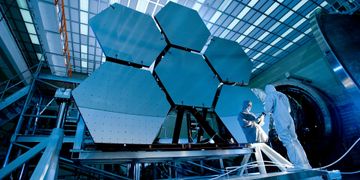Industrial Revolution Today: What Awaits Us in the Coming Years?



The Industrial Revolution was a significant turning point in human history that transformed economies and societies through the introduction of new technologies and mechanized manufacturing processes. Today, we stand on the brink of another industrial revolution – Industry 4.0, which is poised to reshape the way we work, produce, and interact with technology.
As we look towards the future, it's important to consider the implications of this ongoing transformation and the technologies that will drive it. Automation, artificial intelligence, robotics, and digitalization are just a few of the key components that will define the industrial landscape in the coming years.
Automation and Robotics
One of the major trends shaping the future of industries is automation. Automation involves the use of technology to perform tasks that were previously carried out by humans. This shift towards automation is revolutionizing various sectors, including manufacturing, logistics, and healthcare.
Robots are playing a crucial role in the automation process. With advancements in robotics technology, robots are becoming more versatile and capable of performing complex tasks with precision and efficiency. From assembly lines to warehouses, robots are increasingly being integrated into various workflows to streamline processes and enhance productivity.
Artificial Intelligence
Artificial intelligence (AI) is another transformative technology that is driving the industrial revolution. AI enables machines to learn from data, adapt to new information, and perform tasks that typically require human intelligence. In the industrial context, AI is being used to optimize production processes, predict maintenance needs, and improve decision-making.
Machine learning, a subset of AI, is particularly valuable in analyzing large datasets and identifying patterns that can help businesses make informed decisions. By leveraging AI and machine learning algorithms, industries can gain valuable insights into their operations and drive innovation.
Digitalization and Innovation
Digitalization is at the core of Industry 4.0, enabling the integration of physical and digital technologies across all aspects of business operations. From smart factories to digital supply chains, digitalization is revolutionizing the way industries operate.
Innovations such as the Internet of Things (IoT) and cloud computing are empowering industries to collect and analyze real-time data, optimize processes, and create new business models. By embracing digitalization and fostering a culture of innovation, businesses can stay competitive and adapt to the changing demands of the market.
The Future of Manufacturing and the Economy
Looking ahead, the future of manufacturing will be characterized by flexibility, efficiency, and sustainability. With advancements in technologies such as 3D printing, nanotechnology, and renewable energy, manufacturers will have the tools to produce goods more efficiently and sustainably.
Furthermore, Industry 4.0 is expected to redefine the future of the economy by creating new job opportunities, boosting productivity, and driving economic growth. While the automation of certain tasks may lead to job displacement in some sectors, it will also create new roles that require advanced skills and expertise.
In conclusion, the industrial revolution is an ongoing process that will continue to shape the way we live and work in the coming years. By embracing new technologies, fostering innovation, and adapting to change, businesses can position themselves for success in the digital era.





